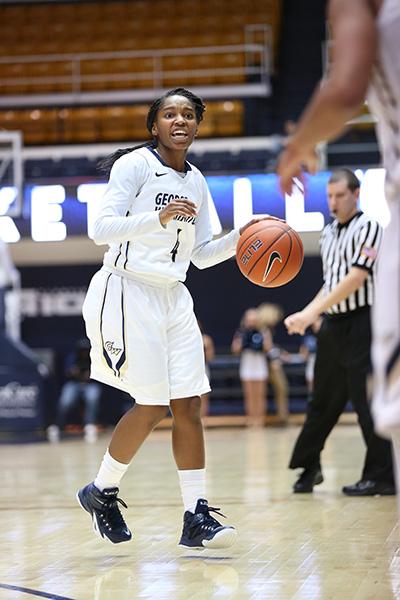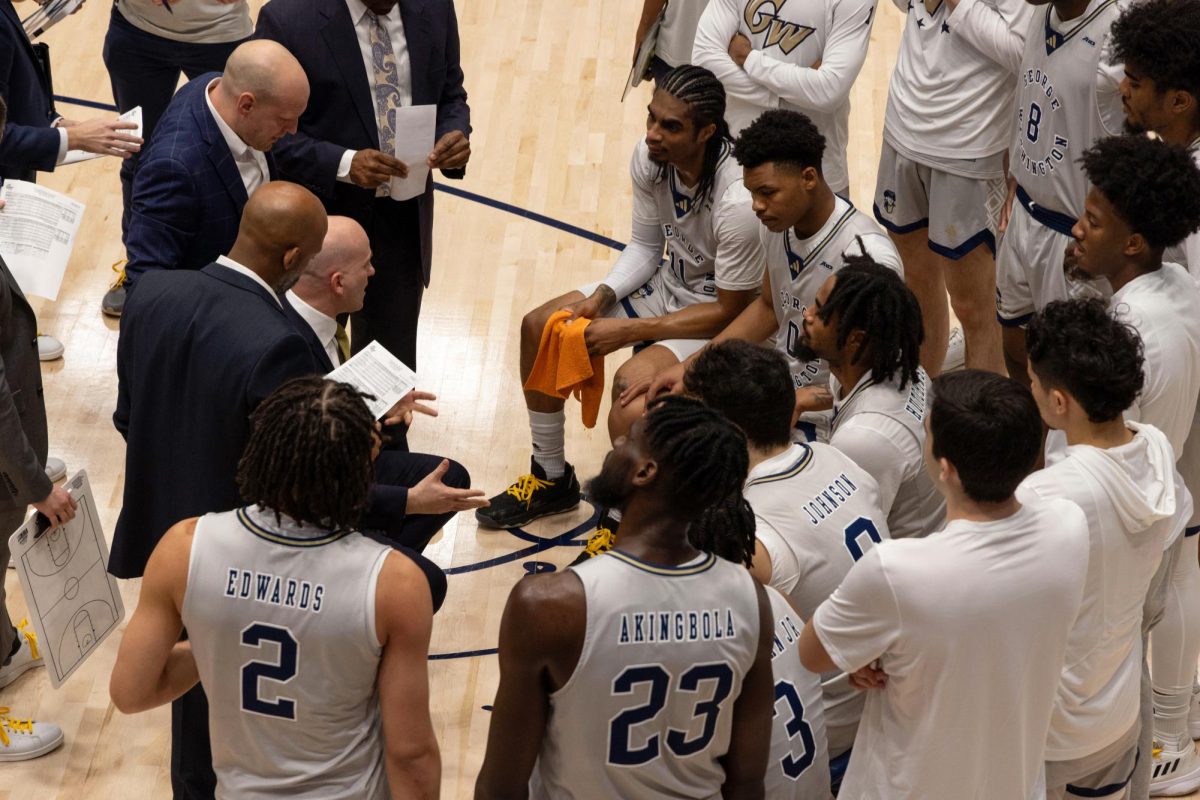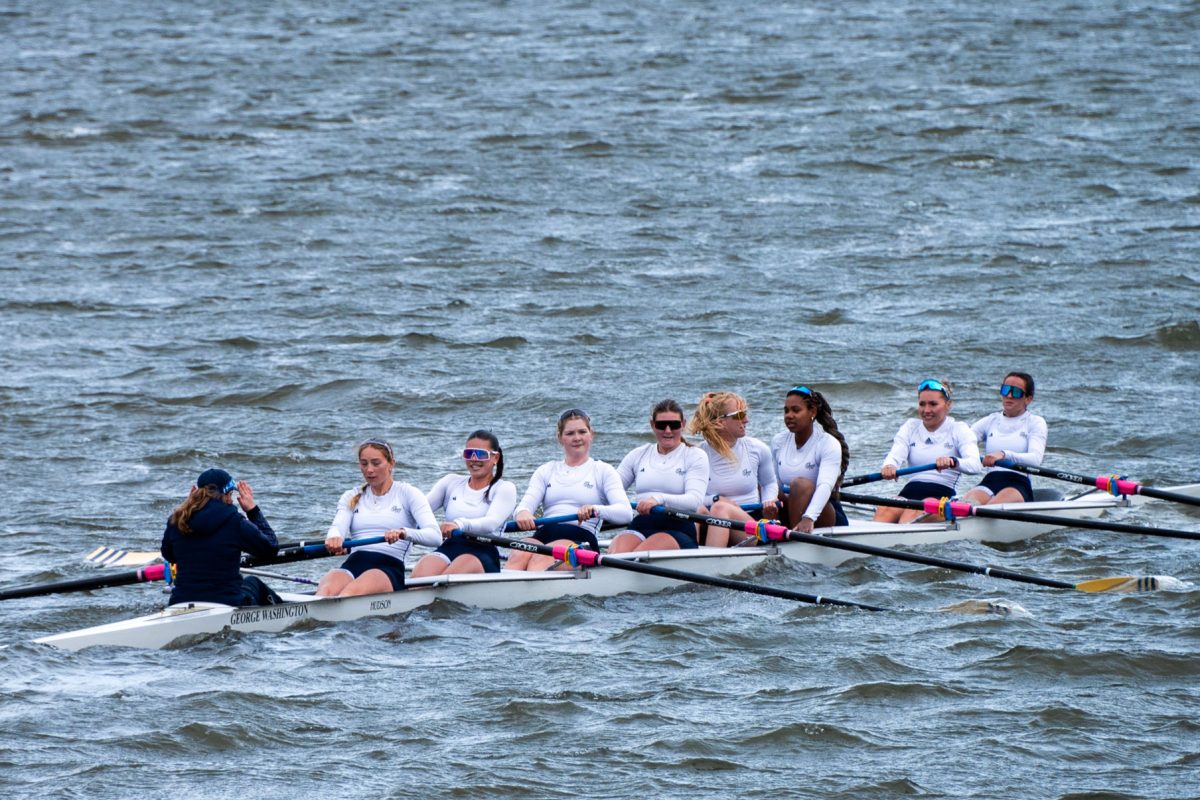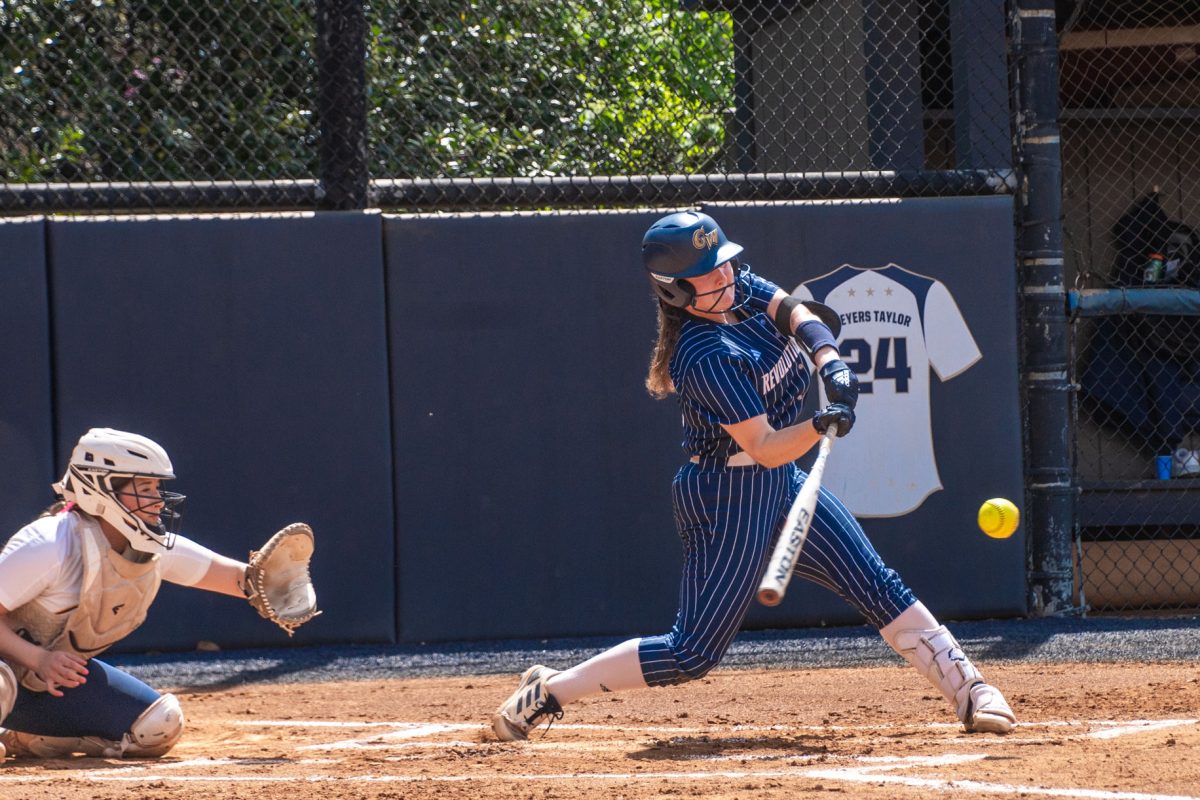When Lauren Chase suffered her third concussion during practice in spring 2013, she thought she would bounce back quickly, as she had from her previous two.
But her mind misled her: Dizziness, sensitivity to light and headaches nearly every day put her in and out of doctors’ offices. At first, a doctor told her she was suffering from migraines, but headache medicine failed to alleviate her pain. Eventually, a neurologist told her that the lingering symptoms were from the concussion and she should take a year off from basketball.
Chase played her first minutes of regular season competition since her sophomore year Friday in GW’s season opener, a little over a week after she revealed that the “personal medical condition” listed on the roster last year had been the concussion. She made the starting lineup, scoring 11 points and adding four rebounds and three assists in her 32 minutes on the court.
Chase spoke publicly about her injury for the first time at the launch of the Mind Matters Challenge, an NCAA and U.S. Department of Defense initiative aimed at promoting self-reporting, awareness of symptoms and research about treatment of concussions in at-risk populations such as student athletes.
“Now that it’s out there, I definitely want to reach out,” Chase said. “I think that it’s really good that I am speaking out and my story came out because it is a way for me to reach out and impact others in similar situations.”
She suffered her other two concussions during her freshman and sophomore years at UMBC, the first during her America East Conference Rookie of the Year season.
When the Bowie, Md. native transferred to GW as a junior last year, she knew she would have to sit out until December due to NCAA transfer rules. However, she did not learn she would have to sit out the entire season until the fall, leaving her with just a year to play unless she is granted an additional year of eligibility.
When the news came, Chase said she struggled at first to define her role with a new team when she couldn’t play on the court with them. Fellow transfer Jonquel Jones, also a former Riverdale Baptist High School star and Chase’s former roommate, said though “everyone was really sad,” the team found ways to let Chase know “her voice was important.”
“Regardless of whether she was on the court or not, we respected everything that she said,” Jones said. “She is a really strong person, so there was probably one time where I saw her get really down about it, but other than that, she has really been strong, and I haven’t seen it bring her or the team down in any way.”
Out of commission and barred from being a physical playmaker on the court, Chase still tried to develop her skills. Tsipis said Chase was a “sponge” – she participated in team huddles, watched other players’ film and went to every point guard meeting.
“I think she sees it from a coach’s perspective a lot more,” Tsipis said. “If you can’t be out there, you have to think how can you still positively effect, how can you make sure that the next time something happens, so you’re ready and can be more successful.”
As the team surged through its best season since 2008, Chase cheered from the bench and dedicated her time to rehabilitating her injury. Tsipis said a recovery technique called vestibular therapy was particularly helpful. Exercises that made Chase’s eyes follow lights or objects retrained her brain to process her movements and vision without feeling pain or dizziness.
But even as she improved, Chase said she struggled when her teammates were mired in nail-biting competition and she was not able to contribute on the floor. The Colonials knocked off two ranked opponents last year in the most successful season since 2008.
“I was very happy for them because as much as I wanted to be out there, I wanted to see the team succeed as well,” Chase said. “Of course, I had those nights where I was like, ‘Dang, I wish I were out there enjoying it with them.’”
Now that she is back on the court, Chase plans to use her experience to prepare for a career. Chase will graduate early and begin graduate work studying rehabilitation counseling with a concentration in traumatic brain injuries next semester. She will remain on the team.
At Friday’s regular season opener, Chase showed some signs of rust, shooting 2-12 from the field and committing six turnovers. But she did shoot a perfect 7-7 from the charity stripe.
In the team’s exhibition win over Virginia Union, Chase tallied eight assists, six points and two steals. Playing in front of a home crowd, including her parents, Chase said she was just happy to get back on the court.
“It felt really good because I haven’t felt that since my sophomore year of college,” Chase said. “Being a senior now and just hearing my name called and having my family there to support me – it was overwhelming.”








